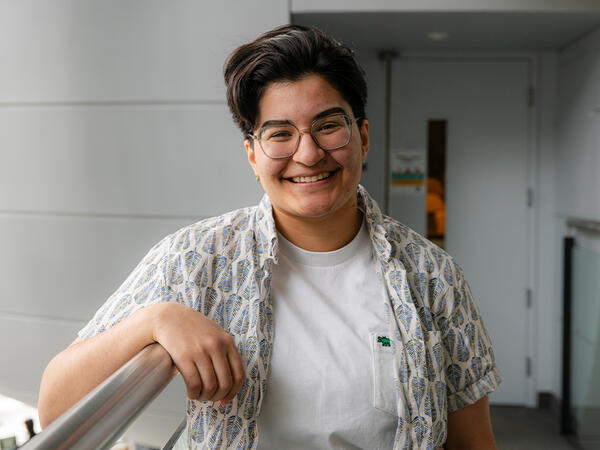Research led by Leslie Dan Faculty of Pharmacy professor finds minority populations far less likely to receive high-dose vaccine
New research published in The Lancet Healthy Longevity is highlighting disparities in flu vaccine access in the United States. Ayman Chit, Assistant Professor at the Leslie Dan Faculty of Pharmacy and Medical Vice President at Sanofi, says he hopes the research will encourage policymakers to find ways to address the systemic inequities facing minority populations, especially as COVID-19 vaccination programs begin to ramp up.
“If we’re seeing this level of disparity in a well-oiled machine like the flu vaccination system, we should expect the same for COVID,” says Chit.
“Policymakers and leaders need to understand the subtle bias that we’re finding and keep it top of mind when they’re making decisions on a day-to-day basis.”
Most of the previous research about differences in vaccination rates among different races and ethnicities, including work from the United Kingdom by this same team, has used data on vaccine uptake. This has meant that differences in uptake couldn’t be definitively linked to race or ethnicity but were often attributed to differences in health care access and education, as well as vaccine hesitancy due to distrust in governments and health systems. But in this most recent study, Chit and his colleagues were able to look past those issues and only consider differences in race.
The team used de-identified data from the American Medicare program to examine flu vaccinations in adults 65 years and older. Medicare covers two forms of the vaccine, a high dose and standard dose, but the higher dose has been shown to be more effective in protecting older adults against the flu. They were able to model and compare who received each type of vaccine and control for factors such as income, education and location.
The study’s results were alarming. People from marginalized populations were less likely to be vaccinated, which the researchers expected. But even among those who did receive a vaccine, Black, Hispanic and Asian people were 30 to 48 per cent less likely to receive the high-dose vaccine compared to white people. And Black women were the least likely of all to receive the high-dose vaccine.
Chit and the research team started the work several years ago, but the results are especially timely, as it has become clear that COVID-19 is affecting minority populations – especially Black people – at higher rates, and with several different COVID-19 vaccines being approved for use.
Addressing issues of health care access, income and education inequality can help improve some of the disparity, Chit says, but their study suggests that these issues may not be the driving cause of the gap. Instead, the racial disparity may be linked to provider behaviour when interacting with the person at point of vaccination.
“We’re finding something deeper here that needs to be studied,” says Chit.
“Even with all other variables being equal, these minority groups are still getting the short end of the stick. And that’s just not right.”
How this plays out in practice is still unclear and needs further research. It’s unlikely that individual health care providers are intentionally withholding high-dose vaccines, but that there are deeper underlying systemic and structural issues. And while individual actions can’t solve a problem as large and complex as this, Chit says that even being aware that this is a problem can help pharmacists provide better care to minority populations.
“When you’re working with someone from a minority group, try and pull yourself out of your default operate mode make a more conscious decision about the health care you’re offering,” says Chit. “Try to overcompensate for the inequity that we’re seeing in the system. I don’t think this will be a simple fix. This is something we all have to work really hard at.”
By: Eileen Hoftyzer
More News
Image

Jeffrey Henderson Receives Prestigious Connaught Innovation Award
Award will support research to advance novel method of modifying cells for testing new gene therapies.
Read More
Image

Faces of PharmSci: Mahya Rezaeifarimani
Supervised by Prof. Shirley Wu, PhD student Mahya Rezaeifarimani is developing smart nanoparticles to help make radiation therapy work better for brain tumours by targeting low-oxygen areas that often make treatment less effective.
Read More
Image

Dean Lisa Dolovich reappointed for second term
Professor Lisa Dolovich has been reappointed for a second term as Dean of the Leslie Dan Faculty of Pharmacy, University of Toronto, effective July 1, 2025, to December 30, 2030.
Read More
